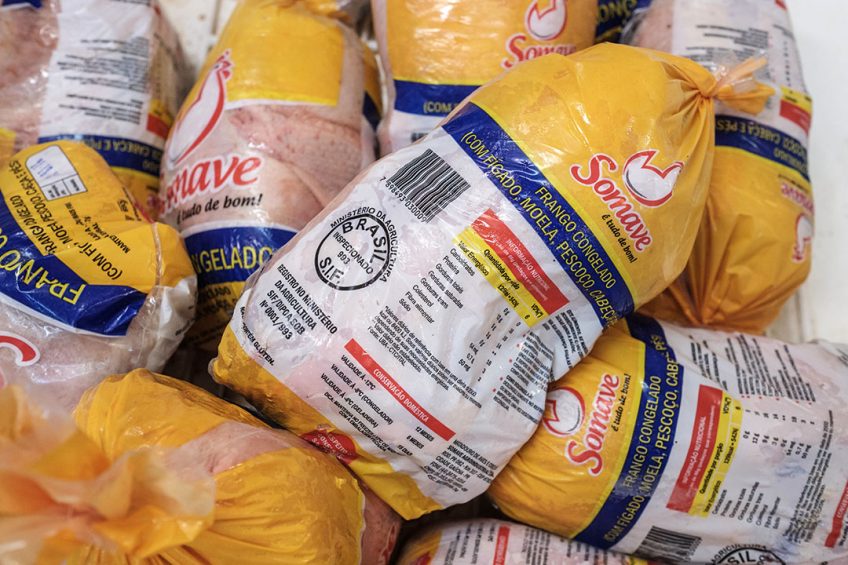EU farmers fear new poultry market access

In late June the European Commission and the Mercosur group of countries signed a provisional trade agreement that, if it is ratified, would be the largest Europe has ever signed and one of the largest in the world. But farmers have expressed concern about granting South American agricultural produce market access.
It took more than 2 decades of negotiations, but a trade agreement between the Mercosur bloc of South American countries and the European Union has been agreed. It marks the end of a lengthy negotiation, and in some ways the beginning of another, as the deal will still have to be signed off by EU member states, as well as the Mercosur countries, which comprise Argentina, Brazil, Paraguay and Uruguay. Venezuela was suspended in 2016 for failing to meet the bloc’s basic standards. The deal aims to remove trade tariffs, making products cheaper for the 800 million consumers that the agreement will cover. It is the largest in the world by population.
‘One of the most important’
EU Commission chief Jean-Claude Juncker said it showed Europe “stood for rules-based trade”. And Brazil’s president Jair Bolsonaro described the deal as “one of the most important” of all time. But many in the agricultural and environmental lobby are not happy. The agreement proposes to increase access for beef and poultry meat products in particular, and Greenpeace for example says that could be a bad deal for the environment. The organisation’s trade expert Naomi Ages said: “Trading more cars for cows is never acceptable when it leads to the destruction of the Amazon, attacks on Indigenous Peoples, and escalating hostility towards civil society. “The deal would also increase greenhouse gas emissions and undermine farmers’ livelihoods on both sides of the Atlantic.”
Beef farmers in Europe, too, have made their protestations known. To so-called “beef belt” of countries that produce a lot of beef – Ireland, France, Belgium and Poland, have all objected to the deal, which will increase the amount of produce that Mercosur countries can send tariff-free. The objections were so strong that leaders of those countries sent a letter to the European Commission warning the deal could threaten beef production – a “fragile” sector. “We would like to express our deep concern on a number of issues concerning the current negotiation with Mercosur including on some sensitive agricultural products,” it says.

Salmonella investigation  Thousands of tonnes of salmonella-contaminated chicken have been exported from Brazil during the past two years, a new report reveals. The Bureau of Investigative Journalists published an expose on the Brazilian broiler industry, which is the largest exporter of frozen chicken in the world. The head of the Brazilian food safety authority has admitted that the country’s 20% contamination rate is too high: “Europe is one step ahead of us regarding the control of salmonella,” Ana Lucia Viana, director of Brazil’s Department of Inspection of Animal Products, told the news organisation Repórter Brasil. The EU has been running a major salmonella reduction programme for more than a decade for its domestic poultry flocks. In the UK, for example, salmonella rates ranged from 1.5% to 2.2% between 2013 and 2017, according to the Food Standards Agency. Thousands of tonnes of salmonella-contaminated chicken have been exported from Brazil during the past two years, a new report reveals. The Bureau of Investigative Journalists published an expose on the Brazilian broiler industry, which is the largest exporter of frozen chicken in the world. The head of the Brazilian food safety authority has admitted that the country’s 20% contamination rate is too high: “Europe is one step ahead of us regarding the control of salmonella,” Ana Lucia Viana, director of Brazil’s Department of Inspection of Animal Products, told the news organisation Repórter Brasil. The EU has been running a major salmonella reduction programme for more than a decade for its domestic poultry flocks. In the UK, for example, salmonella rates ranged from 1.5% to 2.2% between 2013 and 2017, according to the Food Standards Agency. |
A data analysis by Repórter Brasil, working with the Bureau and the Guardian, a UK newspaper, found that contaminated meat from Brazil continues to be picked up in EU border checks. Tests have discovered salmonella in more than 370 consignments of Brazilian chicken and other poultry meat shipped to the EU since April 2017. Contaminated meat has been shipped to more than a dozen EU countries, including the Netherlands, France, Germany, Spain, Italy, Belgium, Ireland and the UK.
Poultry
Broiler producers are also unhappy with the deal. The Association of Poultry Processors and Poultry Trade (AVEC), which represents the European industry, said that the Commission had often praised the sector as independent, taking no production subsidies. Its secretary general Birthe Steenberg said: “Why then did the Commission proceed to offer the sector up for slaughter and sacrifice this ‘success story’ while negotiating the Mercosur agreement?
“A whopping quota of 180,000 tonnes of additional poultry meat has been granted to Mercosur countries, mainly Brazil, precisely double the amount of the last offer made at the end of 2017 and agreed by the EU Member States. “Nothing can justify a 100% increase of the quantities,” said Ms Steenberg. “This is not just about more meat. It’s about people and livelihoods that will be impacted by this agreement! An extra 180,000 tonnes of poultry meat imported to the EU means a significant loss of EU jobs for our sector, mainly located in rural areas.”
Europe imports close to 900,000 tonnes of poultry meat every year from third countries. That compares with the import of beef, about 300,000 tonnes, and pork at around 20,000 tonnes. Ms Steenberg added: “With additional imported quantities, we will import the equivalent of German or French chicken meat production. So why is the EU so ready to chuck out our chicken? “Over the past 20 years the EU poultry meat sector has made huge efforts to implement stronger policies on animal welfare, food safety and environment. “With the Mercosur deal the EU Commission is basically saying our efforts were useless. We are fine with importing poultry meat with lower standards from third countries.
“The EU poultry meat sector feels betrayed by the Commission. Our sector has been sacrificed to satisfy the interests of bigger players. Our words may be strong, but they serve to highlight the level of disarray within the poultry meat sector right now.”
The Brazilian view
|


 Brazilian poultry producers feel trade with Europe helps with the continent’s carcass balance. ABPA, an organisation that promotes exported Brazilian poultry, says Brazilian breastmeat accounts for just 2-4% of EU consumption. The group’s vice president of market access, Ricardo Santin, said Europeans broadly prefer breastmeat over darker cuts of chicken, creating an inbalanced demand for breast, and a surplus of cuts like legs or thighs. Mr Santin explains European producers cannot compete on price for dark meat with producers like Brazil on global markets, so need to balance their own markets in other ways. Importing a portion of Europe’s breastmeat requirement was one way of doing that, he suggested.
Brazilian poultry producers feel trade with Europe helps with the continent’s carcass balance. ABPA, an organisation that promotes exported Brazilian poultry, says Brazilian breastmeat accounts for just 2-4% of EU consumption. The group’s vice president of market access, Ricardo Santin, said Europeans broadly prefer breastmeat over darker cuts of chicken, creating an inbalanced demand for breast, and a surplus of cuts like legs or thighs. Mr Santin explains European producers cannot compete on price for dark meat with producers like Brazil on global markets, so need to balance their own markets in other ways. Importing a portion of Europe’s breastmeat requirement was one way of doing that, he suggested.





